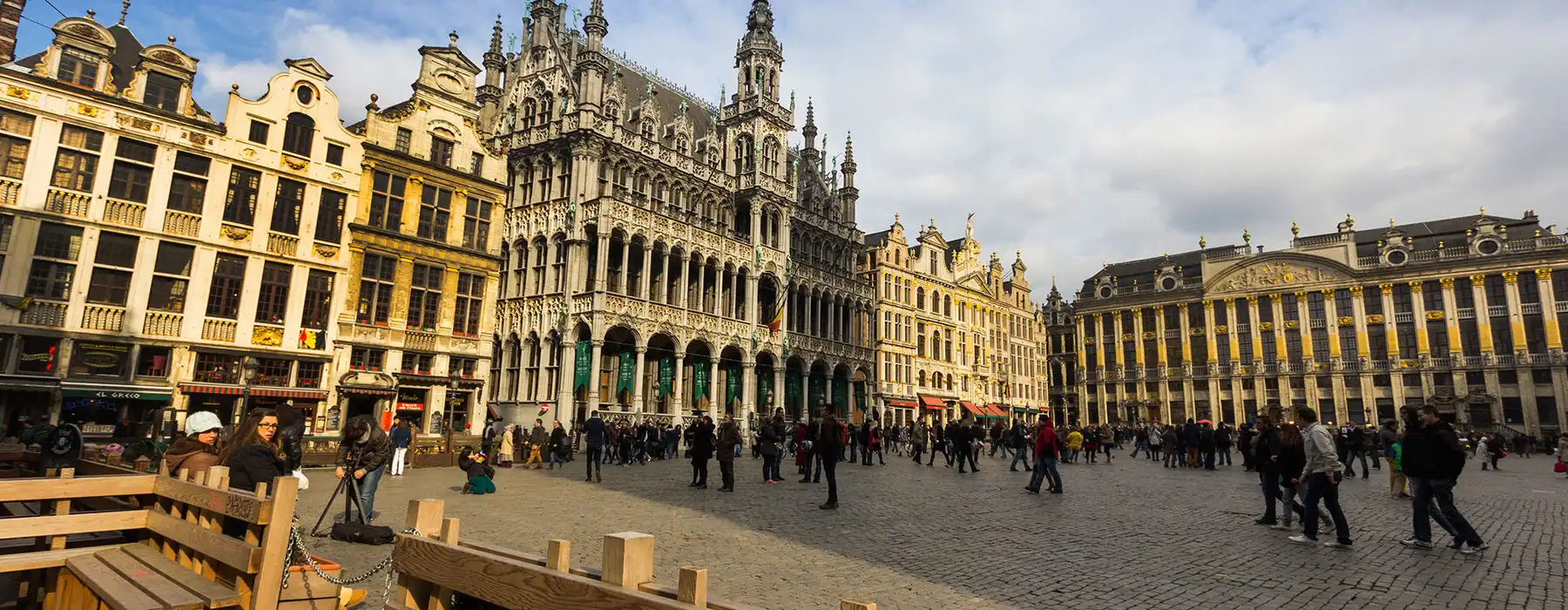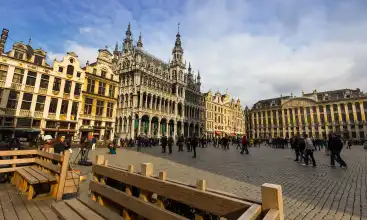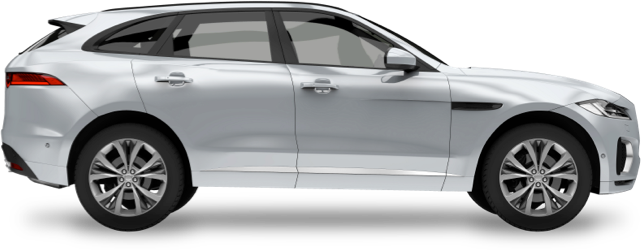- Over 1 million successful rentals
- Popular countries
- Popular regions
- Popular cities
- Popular airports
- Car Hire United Kingdom
- Car Hire Spain
- Car Hire United States
- Car Hire Italy
- Car Hire France
- Car Hire Switzerland
- Car Hire Portugal
- Car Hire Ireland
- Car Hire Cyprus
- Car Hire Greece
- Car Hire Germany
- Car Hire South Africa
- Car Hire Turkey
- Car Hire Australia
- Car Hire Austria
- Car Hire Croatia
- Car Hire Canada
- Car Hire Poland
- Car Hire Netherlands
- Car Hire Denmark
- Car Hire England
- Car Hire Scotland
- Car Hire Florida
- Car Hire California
- Car Hire Majorca
- Car Hire Tenerife
- Car Hire Sicily
- Car Hire Crete
- Car Hire Sardinia
- Car Hire Gran Canaria
- Car Hire Madeira
- Car Hire Wales
- Car Hire Fuerteventura
- Car Hire Menorca
- Car Hire Corsica
- Car Hire Isle of Man
- Car Hire Kefalonia
- Car Hire Channel Islands
- Car Hire Santorini
- Car Hire Azores
- Car Hire London
- Car Hire Geneva
- Car Hire Malaga
- Car Hire Faro
- Car Hire Alicante
- Car Hire Dublin
- Car Hire Manchester
- Car Hire Edinburgh
- Car Hire Orlando
- Car Hire Paphos
- Car Hire Palma de Mallorca
- Car Hire Nice
- Car Hire Milan
- Car Hire Birmingham
- Car Hire Los Angeles
- Car Hire Lisbon
- Car Hire Bristol
- Car Hire Larnaca
- Car Hire Glasgow
- Car Hire Istanbul
- Car Hire London Heathrow Airport
- Car Hire Geneva Airport (Switzerland)
- Car Hire London Gatwick Airport
- Car Hire Malaga Airport
- Car Hire Faro Airport
- Car Hire Alicante Airport
- Car Hire Dublin Airport
- Car Hire Manchester Airport
- Car Hire Orlando International Airport
- Car Hire Edinburgh Airport
- Car Hire Mallorca Airport
- Car Hire Paphos Airport
- Car Hire London Stansted Airport
- Car Hire Geneva Airport (France)
- Car Hire Nice Airport
- Car Hire Los Angeles International Airport
- Car Hire Lisbon Airport
- Car Hire Larnaca Airport
- Car Hire Birmingham Airport
- Car Hire Bristol Airport

Car Hire Belgium
Save time and money. We compare the offers of car rental companies in Belgium on your behalf.
- Free cancellation Up to 48 hours prior to the scheduled pick-up time
- Best price guarantee Have you found a better price? Let us know and we will make you a better offer.
- 24000+ pick-up locations Locations around the world

Compare Car Hire
Carrentals.co.uk offers simple and straightforward car hire comparison services. We don't add a penny to your quotes!
Car rental offers in Belgium
Whether you're looking for a small rental car or a station wagon for the entire family, we will always have a suitable vehicle at the lowest price. Below are some examples from our selection in Belgium.

-
Hertz From£ 20 /day -
Thrifty From£ 20 /day

-
Thrifty From£ 20 /day -
Budget From£ 21 /day -
Avis From£ 24 /day

-
Avis From£ 23 /day -
Budget From£ 23 /day

-
Alamo From£ 20 /day -
Budget From£ 20 /day -
Avis From£ 21 /day

-
Thrifty From£ 20 /day -
Avis From£ 24 /day

-
Hertz From£ 23 /day

-
Thrifty From£ 21 /day

-
Alamo From£ 21 /day -
Enterprise From£ 22 /day

-
Avis From£ 28 /day -
Budget From£ 29 /day

-
Keddy By Europcar From£ 18 /day -
Hertz From£ 20 /day -
Thrifty From£ 20 /day

-
Europcar From£ 18 /day -
Keddy By Europcar From£ 18 /day -
Sixt From£ 21 /day

-
Keddy By Europcar From£ 20 /day -
Europcar From£ 21 /day -
Sixt From£ 26 /day

-
Keddy By Europcar From£ 19 /day -
Europcar From£ 20 /day -
Hertz From£ 23 /day

-
Hertz From£ 20 /day

-
Keddy By Europcar From£ 21 /day -
Europcar From£ 22 /day -
Budget From£ 35 /day

-
Keddy By Europcar From£ 20 /day -
Europcar From£ 20 /day

-
Keddy By Europcar From£ 22 /day -
Europcar From£ 23 /day

-
Budget From£ 20 /day

-
Europcar From£ 18 /day -
Budget From£ 25 /day -
Flizzr From£ 27 /day

-
Keddy By Europcar From£ 19 /day -
Europcar From£ 24 /day

-
Europcar From£ 19 /day -
Budget From£ 27 /day -
Flizzr From£ 34 /day

-
Europcar From£ 19 /day -
Keddy By Europcar From£ 24 /day

-
Keddy By Europcar From£ 22 /day -
Europcar From£ 22 /day -
Budget From£ 32 /day

-
Hertz From£ 20 /day -
Flizzr From£ 24 /day -
Enterprise From£ 26 /day

-
Keddy By Europcar From£ 20 /day -
Hertz From£ 20 /day -
Thrifty From£ 21 /day

-
Europcar From£ 22 /day -
Keddy By Europcar From£ 23 /day -
Sixt From£ 30 /day

-
Keddy By Europcar From£ 20 /day -
Europcar From£ 21 /day -
Budget From£ 29 /day

-
Thrifty From£ 23 /day -
Hertz From£ 23 /day -
Avis From£ 31 /day

-
Alamo From£ 23 /day -
Enterprise From£ 25 /day -
Hertz From£ 31 /day

-
Keddy By Europcar From£ 25 /day -
Europcar From£ 26 /day -
Avis From£ 41 /day

-
Alamo From£ 23 /day -
Enterprise From£ 26 /day -
Europcar From£ 28 /day

-
Alamo From£ 23 /day -
Enterprise From£ 27 /day -
Avis From£ 38 /day

-
Hertz From£ 26 /day -
Avis From£ 34 /day -
Budget From£ 35 /day

-
Thrifty From£ 23 /day -
Enterprise From£ 25 /day -
Hertz From£ 25 /day

-
Alamo From£ 24 /day -
Enterprise From£ 26 /day

-
Hertz From£ 30 /day

-
Alamo From£ 22 /day -
Enterprise From£ 25 /day

-
Alamo From£ 22 /day -
Enterprise From£ 25 /day

-
Keddy By Europcar From£ 25 /day -
Europcar From£ 26 /day

-
Alamo From£ 23 /day -
Enterprise From£ 26 /day

-
Keddy By Europcar From£ 24 /day -
Europcar From£ 25 /day

-
Keddy By Europcar From£ 33 /day -
Europcar From£ 41 /day

-
Alamo From£ 25 /day -
Enterprise From£ 26 /day

-
Keddy By Europcar From£ 34 /day -
Europcar From£ 72 /day

-
Europcar From£ 28 /day -
Keddy By Europcar From£ 32 /day

-
Sixt From£ 35 /day -
Flizzr From£ 37 /day -
Avis From£ 54 /day

-
Sixt From£ 36 /day -
Flizzr From£ 41 /day

-
Sixt From£ 39 /day -
Flizzr From£ 47 /day -
Avis From£ 54 /day

-
Sixt From£ 38 /day -
Flizzr From£ 43 /day

-
Keddy By Europcar From£ 38 /day -
Europcar From£ 42 /day

-
Keddy By Europcar From£ 41 /day -
Hertz From£ 51 /day -
Budget From£ 54 /day

-
Keddy By Europcar From£ 39 /day -
Europcar From£ 40 /day -
Hertz From£ 48 /day

-
Sixt From£ 41 /day -
Flizzr From£ 47 /day

-
Keddy By Europcar From£ 42 /day

-
Hertz From£ 32 /day

-
Europcar From£ 35 /day -
Avis From£ 45 /day -
Budget From£ 56 /day

-
Europcar From£ 36 /day -
Budget From£ 58 /day

-
Hertz From£ 41 /day

-
Avis From£ 48 /day -
Budget From£ 57 /day

-
Sixt From£ 52 /day

-
Sixt From£ 56 /day

-
Sixt From£ 52 /day

-
Sixt From£ 54 /day -
Flizzr From£ 55 /day

-
Europcar From£ 21 /day -
Keddy By Europcar From£ 24 /day

-
Alamo From£ 22 /day

-
Keddy By Europcar From£ 28 /day -
Europcar From£ 37 /day

-
Alamo From£ 23 /day -
Enterprise From£ 26 /day -
Thrifty From£ 26 /day

-
Alamo From£ 23 /day -
Enterprise From£ 25 /day -
Avis From£ 28 /day

-
Hertz From£ 28 /day -
Sixt From£ 33 /day -
Flizzr From£ 43 /day

-
Alamo From£ 23 /day -
Enterprise From£ 26 /day

-
Alamo From£ 23 /day -
Enterprise From£ 25 /day

-
Sixt From£ 30 /day -
Flizzr From£ 31 /day -
Budget From£ 39 /day

-
Europcar From£ 55 /day

-
Europcar From£ 73 /day

-
Europcar From£ 73 /day

-
Sixt From£ 80 /day

-
Europcar From£ 83 /day

-
Hertz From£ 82 /day

-
Hertz From£ 89 /day

-
Europcar From£ 89 /day

-
Europcar From£ 91 /day

-
Sixt From£ 31 /day

-
Sixt From£ 32 /day

-
Sixt From£ 46 /day

-
Sixt From£ 48 /day

-
Sixt From£ 54 /day

-
Sixt From£ 55 /day

-
Sixt From£ 56 /day

-
Sixt From£ 58 /day

-
Flizzr From£ 22 /day -
Sixt From£ 24 /day

-
Alamo From£ 23 /day -
Enterprise From£ 26 /day

-
Flizzr From£ 29 /day -
Sixt From£ 30 /day

-
Flizzr From£ 23 /day -
Sixt From£ 24 /day

-
Avis From£ 24 /day

-
Flizzr From£ 30 /day -
Sixt From£ 32 /day

-
Flizzr From£ 24 /day -
Enterprise From£ 26 /day -
Sixt From£ 26 /day

-
Enterprise From£ 25 /day -
Hertz From£ 25 /day

-
Avis From£ 31 /day

-
Europcar From£ 18 /day -
Budget From£ 25 /day -
Flizzr From£ 27 /day

-
Europcar From£ 18 /day -
Keddy By Europcar From£ 18 /day -
Sixt From£ 21 /day

-
Europcar From£ 19 /day -
Budget From£ 27 /day -
Flizzr From£ 34 /day

-
Europcar From£ 19 /day -
Keddy By Europcar From£ 24 /day

-
Keddy By Europcar From£ 20 /day -
Europcar From£ 21 /day -
Sixt From£ 26 /day

-
Hertz From£ 20 /day

-
Hertz From£ 20 /day -
Enterprise From£ 26 /day -
Sixt From£ 30 /day

-
Hertz From£ 23 /day -
Sixt From£ 40 /day

-
Europcar From£ 21 /day
Popular cities in Belgium





When to book a rental car in Belgium
Belgium - When is the most affordable time to rent a mini class car?
At this destination (Belgium), January is the most affordable time to rent a mini class car with an average daily rate of
Belgium - When is the most affordable time to rent a economy class car?
At this destination (Belgium), January is the most affordable time to rent a economy class car with an average daily rate of
Belgium - When is the most affordable time to rent a compact class car?
At this destination (Belgium), January is the most affordable time to rent a compact class car with an average daily rate of
Belgium - When is the most affordable time to rent an intermediate class car?
At this destination (Belgium), January is the most affordable time to rent a intermediate class car with an average daily rate of
Belgium - When is the most affordable time to rent a standard class car?
At this destination (Belgium), September is the most affordable time to rent a standard class car with an average daily rate of
Belgium - When is the most affordable time to rent a full-size car?
At this destination (Belgium), February is the most affordable time to rent a full-size class car with an average daily rate of
Belgium - When is the most affordable time to rent a luxury car?
At this destination (Belgium), February is the most affordable time to rent a luxury class car with an average daily rate of
Belgium - When is the most affordable time to rent a station wagon?
At this destination (Belgium), January is the most affordable time to rent a station wagon with an average daily rate of
Belgium - When is the most affordable time to rent a SUV?
At this destination (Belgium), November is the most affordable time to rent an SUV with an average daily rate of
Belgium - When is the most affordable time to rent a MPV?
At this destination (Belgium), September is the most affordable time to rent an mpv with an average daily rate of
Belgium - When is the most affordable time to rent a minivan?
At this destination (Belgium), September is the most affordable time to rent a minibus with an average daily rate of
Belgium - When is the most affordable time to rent a sports car?
At this destination (Belgium), February is the most affordable time to rent a sports car with an average daily rate of
Belgium - When is the most affordable time to rent a convertible?
At this destination (Belgium), March is the most affordable time to rent a convertible with an average daily rate of
Belgium - When is the most affordable time to rent a sedan?
At this destination (Belgium), February is the most affordable time to rent a sedan with an average daily rate of

Belgium Guide
Belgium is best explored by rental car. Carrentals.co.uk has over 37 pick-up locations in Belgium. This means there is always a pick-up location close to your destination.
Most popular car hire locations in Belgium
Driving
Known for its tasty dark chocolates and beer, Belgium, home to the European Parliament, is a country of historic cities and wonderful driving. Cities are cool, vibrant and easily explored on foot, while the countryside is flat and close at hand. Driving between the main centres can be done at a snap and the stunning Ardennes region begs to be explored.
Driving Tips for Belgium
Belgian roads are good and main cities are connected by toll-free motorways, though signage can be difficult to decipher, with inconsistent colours and layout, so it’s worth having GPS. Give way to traffic from the right and to trams and buses.
Driving licences: you can drive here with a valid UK driving licence. If your licence is the old paper type, an International Driving Permit is required.
Which side does Belgium drive on: the right.
Speed limits:
Motorways: 74mph (120kph)
Rural areas: 56mph (90kph)
Built-up areas: 31mph (50kph) or 18mph (30kph) near schools
Alcohol limits: 0.05 per cent, with on-the-spot fines for offenders with blood alcohol levels of between 0.05 and 0.08 per cent and heavy penalties including imprisonment thereafter. The UK’s limit is 0.08 per cent.
Driving age: 18 years.
Seatbelts: all passengers must wear them. Ask the rental company about adapted car seats if travelling with children/infants under 5 stone, 9 pounds (36kgs) and/or 4 feet 5 inches (1.35m) tall.
Mobile phones and GPS: you can use a mobile phone with a hands-free kit while driving. It is also okay to use GPS, but there are heavy fines for those who programme these devices while on the move.
Cost of fuel in Belgium: both petrol and diesel are cheaper in here than in the UK.
Car hire and fuel payment:
foreign credit cards are accepted at manned petrol stations, but they may not work at automatic pumps. Let your credit card supplier know you are travelling as standard antifraud measures may see your card locked when used overseas.
Insurance: the main car hire companies provide insurance, but it is advised to take out excess insurance to cover in the event of an accident.
Traffic and parking: Brussels and Bruges is where traffic is heaviest. Street meters and Blue-Zone parking are common; the latter requires parkers to display a cardboard clock (available from newsagents and petrol stations) which shows the time of arrival. A red triangle signifies no parking at rush hours. Avoid parking on tram lines and yellow lines.
Transport
Trains
Travel by rail to Belgium is the preferred method of land-based travel, with direct international services from London aboard Eurostar (three hours), as well as from Paris. Useful services also come in from Netherlands and German cities. Brussels is the main rail hub. Rail travel around the country with NMBS is also good, with a comprehensive rail network covering all cities. Various cheap deals are available, including web deals for £4.00, and Seniors (65 and over) tickets at £4.30 for a return journey anywhere in the country. Services are fast, modern, comfy and cheap compared with the UK. The main cities have metro and tram networks.
Taxis
All towns have taxi companies and taxi ranks. Cabs are metered and have an initial fixed fee and per-kilometre rates, for example in the capital kilometre rates are between £1.30 and £2.10 depending on the area of the city travelled to, plus an initial fixed fee of £1.90. The initial fixed fee rate goes up at night to £3.50 although rates are cheaper than in the UK in general. Taxis are typically chartered at stands which are located at busy spots, such as train stations, near squares and at big hotels. Taxis can’t be hailed in the street but you can pre-book and there’s no need to tip as a gratuity is included in the meter price.
Buses
Bus travel to Belgium is more flexible and cheaper than rail travel, and easily done from neighbouring countries, including the UK, with Eurolines (which is affiliated with National Express), with ticket prices to Brussels from £19.00. Hoverspeed Citysprint also serves the country and there are main stops in Brussels (north), in nearby Leuven and at Antwerp and Liege. Local buses run nationwide, though bus travel is a lot slower than train travel. The various domestic bus lines all offer ticket deals like one day unlimited travel in Wallonia for £6.00 and 24-hour return trip metropolitan tickets for £2.80. The Kusttram bus serves the Belgian coast, while cities are zoned.
Ferries
Ferry travel has always been a popular way to get to Belgium from the UK, with regular car passenger ferries from England. They run from Ramsgate to Ostend with Oostende Lines (daytime) and from Hull to Zeebrugge with North Sea Ferries (overnight). Ticket prices vary with the season – summer sees the most expensive rates of close to £300.00 - very cheap deals are available in the off-season for as little as £46.00 for two passengers and a vehicle.
Airports
The principal airport for Belgium is Brussels International, located just outside the capital and well-linked to it by train and coach services. The national airline is based here but various other major airlines fly into Brussels, along with low-cost carriers like JetairFly, Vueling and Thomas Cook. Other budget services like Ryanair use Brussels South Charleroi Airport, located 50kms from the capital but linked to it by a coach service (typically tickets are £10.50 one-way). The third airport for Belgium is Antwerp Airport, with well-priced business service links to London City Airport via CityJet and others.
Explore
Exploring Belgium
Brussels is the buzzing capital and main draw, with bags of character and big monuments, such as the UNESCO World Heritage listed Grand Place. Among the churches, palaces and guildhalls, one of the more quirky landmarks worth a visit is the 1958 World's Fair Atomium. The Battle of Waterloo site is just south of the city.
Bruges, noted for its medieval old town, dreamy spires and canals, is especially stunning, while Antwerp—another of Belgium’s main cities—is a city of Art Nouveau and neo-Renaissance houses.
Nearby Ghent appeals more to students and the young set owing to the many pubs and bars, while the Belfort and Sint-Baafskathedral gallery are must-sees.
The French-speaking city of Liege, farther east, and ancient Tongeren are alternatives and good launching points of exploration into the beautiful Ardennes. This region has the best driving in the country, with its rolling landscape, rich forests and tranquil villages. For insight into the Battle of the Bulge, visit the Bastogne Historical Centre at Bastogne.
The French-speaking Wallonia centre of Dinant, meanwhile, is also worth a side trip for a slice of France and the incredible Notre Dame church on the Meuse River.
Weather
Belgium’s weather is similar to that in the south of England, being mild with lots of rain. July to August daily summer highs are 22°C (71°F) and this is the best time to visit, although cities and roads tend to be busy with tourists. It rains most in autumn and winter, with drier weather in the spring shoulder season, when cheaper hotels and travel deals can often be had. Temperatures rarely drop to below freezing in winter.
Practical information
-
CurrencyEuro
-
Driving directionRight
-
City speed limit50 km/h
-
Freeway speed limit90 km/h
-
LanguageDutch, German, French
-
Popular car categoryCompact
What most people want to know
The following questions and answers are a selection of the most popular questions. If you do not find the answer to your question, have a look at the Frequently Asked Questions page or contact us.
- Keddy By Europcar
- Enterprise
- Alamo
- Dollar Rent a Car
- Budget
- Flizzr
- Sixt
- Hertz
- Avis
- InterRent
- Thrifty
- Europcar
- Red Spot Car Rental
- Advantage Rent a Car
- National Car Rental
- Your Rent
- CITROEN
